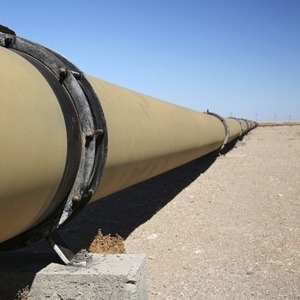Iowa bill aims to implement new requirements for CO2 pipelines

February 21, 2023
BY Erin Krueger
A bill introduced in the Iowa legislature on Feb. 20 aims to implement new requirements for the development of carbon dioxide pipelines within the state. The Iowa Renewable Fuels Association has spoken out against the legislation.
The bill, HF 368, was introduced on Feb. 20 by Iowa Rep. Steven Holt and addressed by a House Judiciary subcommittee the following day. The legislation passed out of subcommittee by a vote of 2-0.
Advertisement
Advertisement
The bill, in part, would prevent the Iowa Utilities Board from granting a permit to a pipeline company until the U.S. Department of Transportation’s Pipeline and Hazardous Materials Safety Administration provides new rules updating the safety standards for liquified carbon dioxide pipelines, including requirements related to emergency preparedness and response. The bill also aims to prevent the board from granting a liquefied carbon dioxide pipeline company the right of eminent domain unless the company acquires at least 90 percent of the affected route miles through voluntary easements or through preexisting easements.
The IRFA is speaking out against the HF 368. “The difference between the rhetoric and reality on this bill is truly staggering,” said Monte Shaw, executive director of the IRFA. “We hear about property rights, but this bill wouldn’t impact the next Dakota Access oil pipeline or Rock Island Clean Line Transmission project. We hear about safety, but this bill doesn’t apply to pipelines that carry explosive or flammable liquids while CO2 is neither. Instead, this bill singles out for destruction the single most important technology we have to keep liquid fuels like ethanol competitive with electric vehicles in the rapidly growing low carbon transportation markets. It is no surprise that anti-agriculture groups like the Sierra Club support preventing carbon capture and sequestration from going forward.”
“The bill is a veritable cornucopia of unreasonable regulations narrowly targeted at CCS technology,” continued Shaw. “For example, section three of the bill would allow just two people to effectively veto an interstate CCS project even if that project had 100 percent voluntary easements. It would only take two county supervisors to enact an ordinance, like a setback requirement that is physically impossible to meet, and then the Iowa Utilities Board (IUB) would be prevented from issuing a final permit.”
Advertisement
Advertisement
“IRFA continues to urge all Iowans to unite to find a fair and equitable path forward for carbon capture and sequestration (CCS) projects – fair and equitable to landowners, CCS projects and communities,” Shaw added. “Further, any changes to the IUB permitting process should apply to all applicants, not just CO2 pipelines.”
A full copy of the bill is available on the Iowa Legislature website.
Related Stories
President Trump on July 4 signed the “One Big Beautiful Bill Act.” The legislation extends and updates the 45Z credit and revives a tax credit benefiting small biodiesel producers but repeals several other bioenergy-related tax incentives.
CARB on June 27 announced amendments to the state’s LCFS regulations will take effect beginning on July 1. The amended regulations were approved by the agency in November 2024, but implementation was delayed due to regulatory clarity issues.
SAF Magazine and the Commercial Aviation Alternative Fuels Initiative announced the preliminary agenda for the North American SAF Conference and Expo, being held Sept. 22-24 at the Minneapolis Convention Center in Minneapolis, Minnesota.
Saipem has been awarded an EPC contract by Enilive for the expansion of the company’s biorefinery in Porto Marghera, near Venice. The project will boost total nameplate capacity and enable the production of SAF.
Global digital shipbuilder Incat Crowther announced on June 11 the company has been commissioned by Los Angeles operator Catalina Express to design a new low-emission, renewable diesel-powered passenger ferry.
Upcoming Events










